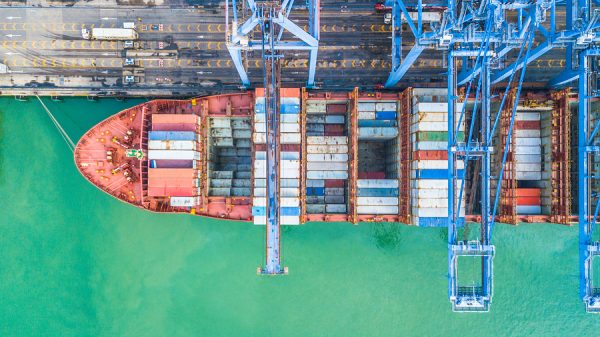
Several weeks ago, the government in Thailand announced that the country would no longer accept e-waste imports. The announcement comes approximately one year after China’s government officials reached the same decision to ban imports of e-waste sent from countries around the world. Both decisions generated a significant number of headlines, but despite the press coverage, many people still do not understand why these two countries have banned e-waste imports.
The Dangers of E-Waste
To understand why these two countries came to this decision, it’s important to learn about the dangers of e-waste. Smartphones, computers, and televisions may seem harmless, but a number of toxic chemicals are actually hiding underneath the outer plastic casing of these products. Hazardous substances such as lead, mercury, cadmium, copper, nickel, and zinc are all found in electronic devices. Consumers are safely protected from these substances when the products are in use. But, if these electronic devices are not disposed of properly, they will end up in landfills where they will eventually start to release these hazardous substances into the environment. Over time, the chemicals will make their way into the atmosphere or groundwater, meaning they can contaminate the air people breathe and the water that they drink.
Numerous studies have shown that exposure to these harmful substances can lead to serious consequences. For example, nickel and chromium are carcinogens, so long-term exposure to these substances can cause cancer. Cadmium interferes with the body’s ability to metabolize calcium, so exposure to this substance can cause long-term bone weakness and pain. Lead poisoning is another potential consequence. This illness can cause paralysis and in some cases, death. These are just some of the many potential ways that e-waste can cause harm.
Even if people are not directly exposed to these harmful substances, they can still suffer these consequences. This is because once the substances are released into the environment, they eventually make their way into the food chain. People then end up consuming small amounts of these harmful substances through their normal diet.
How Does E-Waste End Up in China and Thailand?
There are countless e-waste recyclers in the U.S. that market themselves as eco-friendly companies that are dedicated to safely disposing of e-waste in order to protect the planet. But, a two-year investigation conducted by the Basel Action Network revealed that the majority of the e-waste sent to these companies is not safely recycled. Instead, many of these companies ship the e-waste to other countries, including China and Thailand.
Workers in these countries are responsible for breaking down the e-waste once it arrives. But unfortunately, these workers do not have the proper safety gear or equipment to process e-waste without possibly harming themselves or the environment. As a result, much of the e-waste that is taken in by these so-called eco-friendly companies is harming the planet in the same way that e-waste sitting in a landfill does.
How Chinese and Thai Government Officials Reached This Decision
China and Thailand were previously two of the world’s biggest importers of e-waste. Although China used to hold one of the top spots, many countries began to dump their e-waste in Thailand after China banned e-waste imports last year. But, it seems that both countries have now realized that the cons of importing e-waste far outweighed the pros. In their official statement, Thai authorities made it clear that they prioritized the health of their citizens over the opportunity to grow their e-waste processing industry. By banning e-waste imports, Thai officials can protect their citizens and make sure that they are not tasked with the responsibility of handling hazardous materials.
What Will Happen to E-Waste Now?
China and Thailand may have banned e-waste imports, but there are still many other countries that will accept electronic waste. Therefore, it is safe to assume that the companies that ship e-waste overseas will simply find a new dumping ground now that they can no longer do business with China or Thailand.
However, it’s important to note that only untrustworthy and dishonest e-waste recyclers ship their e-waste overseas instead of processing it in the U.S. Some e-waste recyclers, including ERI, have never engaged in this unethical and harmful practice. As a result, the the decision to ban imports of e-waste in China and Thailand will not affect these reliable e-waste recyclers. These recyclers will continue to safely process their e-waste in special facilities that are designed specifically for this task.
How to Find A Reliable E-Waste Recycler
It’s important to take the time to research e-waste recyclers before deciding which one to do business with so you can ensure the one you choose is not shipping e-waste overseas. Ask each potential e-waste recycler how they process the e-waste sent to their facilities. Does it stay in the U.S. or is it sent to other countries for processing?
If you’re not satisfied with the answer to this question, you can also ask e-waste recyclers about their certifications. It’s best to look for an e-waste recycler that has both the e-Stewards and National Association for Information Destruction (NAID) AAA certifications. An e-waste recycler with these certifications has proven that they process e-waste in special facilities in the U.S. as opposed to sending it overseas.
Are you looking for an e-waste recycler? If so, look no further than ERI. ERI is the leading e-waste recycler in the country, with special recycling facilities located in seven different states. Every year, ERI processes over 250 million pounds of e-waste for clients in retail, government, healthcare, financial services, and other leading industries. Every pound of e-waste is processed here in the U.S., not overseas. For more information on recycling your electronics, or to request a quote for your company, contact us today.